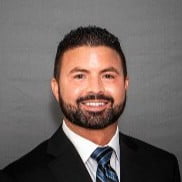

“The greatest glory in living lies not in never falling, but in rising every time we fall.” – Nelson Mandela
Addiction destroys lives, families, and futures. Whether it’s alcohol, heroin, meth, or prescription pills, substance abuse leads to mental health problems, job loss, homelessness, overdose, or death. According to the CDC, over 106,000 Americans died from drug overdoses in 2021. That’s nearly 300 people every single day.
But there is hope. Rehab in metropolitan settings offers accessible, effective treatment programs for people living in cities. Urban addiction treatment programs combine medical care, therapy, and community support in locations close to home, work, and loved ones, making recovery possible without needing to leave your life behind.
What Is Rehab in Metropolitan Setting?
Rehab in metropolitan setting refers to addiction treatment programs located in urban areas. These programs provide detox, inpatient, outpatient, and aftercare services in city-based facilities. They serve people who need treatment but want to stay near their homes, jobs, or families.
The Benefits of Urban Addiction Treatment Programs
Here are key benefits of urban addiction treatment programs:
- Accessibility: Easy to reach via public transportation, reducing barriers to care.
- Continuity of life: Clients can continue work, school, or family responsibilities while receiving treatment.
- Diverse services: Metropolitan rehabs often offer specialized programs for mental health, trauma, and co-occurring disorders.
- Community support: Staying in your city keeps you connected to sober networks and recovery groups.
- Privacy and convenience: Urban rehabs blend into city settings, reducing stigma concerns for many clients.
Urban Rehab vs. Rural or Scenic Rehab
While rural or mountain views rehabs offer scenic serenity, urban addiction treatment programs provide:
✔️ Immediate access to emergency care and hospitals if needed
✔️ Connections to housing, employment, and social services
✔️ Flexible outpatient options for people needing minimal disruption to daily life
For many, staying close to their community and resources is essential for lasting recovery.
Rehab in Metropolitan Settings and Mental Health Care
Addiction rarely exists alone. Many clients also struggle with depression, anxiety, PTSD, or bipolar disorder. Metropolitan rehabs treat both addiction and mental health together, offering:
- Psychiatric evaluations and medication management
- Individual therapy using CBT or trauma-focused techniques
- Group therapy and peer support sessions
- Mindfulness, meditation, and holistic wellness programs
According to NIDA, people with untreated mental health disorders are twice as likely to develop substance use disorders. Treating both is critical for recovery success.
What to Expect in Metropolitan Rehab Programs
Here’s what to expect in a rehab program in a metropolitan setting:
1. Intake Assessment
A team evaluates your addiction history, mental health, and goals to create a personalized plan.
2. Detox Services
Medical detox to manage withdrawal symptoms safely and comfortably.
3. Inpatient or Outpatient Treatment
Depending on severity, you may stay in a residential program or attend outpatient therapy while living at home.
4. Therapy and Counseling
Includes individual therapy, group sessions, family counseling, trauma therapy, and relapse prevention training.
5. Holistic Therapies
Many urban rehabs offer yoga, meditation, art therapy, or gym therapy to heal mind and body.
6. Aftercare Planning
Staff help you build a plan for sober living, outpatient therapy, employment support, and ongoing recovery groups.
Famous Voices on Recovery and Hope
“You may have to fight a battle more than once to win it.” – Margaret Thatcher
Recovery is not easy, but with the right support, each step brings you closer to health, peace, and freedom.
Statistics Highlighting the Need for Urban Rehab Programs
✔️ Over 21 million Americans have at least one addiction, but only 10% receive treatment (SAMHSA).
✔️ Urban areas have higher rates of alcohol and opioid use, with easier access to substances and greater overdose risks (CDC).
✔️ Integrated addiction and mental health treatment increases recovery success rates by up to 50% (National Institute on Drug Abuse).
Real Stories of Hope
Lamar, who shared his journey with Detox to Rehab, struggled with alcohol addiction for over a decade. He chose an outpatient program in his city to keep working and caring for his children.
“Going to rehab in my city made it possible. I didn’t have to lose my job or time with my kids. The support was there, and now I’ve been sober for 18 months,” he says.
Paying for Rehab in Metropolitan Settings: Private Insurance and Medicaid
Many worry about costs, but private insurance and Medicaid often cover detox, inpatient, and outpatient rehab programs. Urban centers usually have financial assistance, sliding scale fees, or nonprofit options to make treatment accessible for everyone.
Contact your chosen facility to verify coverage and explore financial support programs.
Choosing the Right Metropolitan Rehab Program
When looking for a program, ask:
- Is the facility licensed and accredited?
- Do they treat co-occurring mental health conditions?
- What therapy modalities and holistic services are offered?
- Is treatment covered by private insurance or Medicaid?
- What aftercare and community support programs are available?
Choosing the right program ensures safe, compassionate, and effective care for your recovery journey.
Recovery and Healing in Urban Settings
Addiction doesn’t care where you live, but rehab in metropolitan settings ensures you can access care without leaving your life behind. Urban addiction treatment programs offer effective, compassionate services to help you heal and build a life you’re proud of.
“Though no one can go back and make a brand-new start, anyone can start from now and make a brand-new ending.” – Carl Bard
You Deserve Recovery and Hope
If you or a loved one is battling addiction, don’t wait. Rehab in metropolitan settings offers accessible, life-changing treatment close to home. Contact a treatment center near you today to learn what to expect and begin your journey toward healing, health, and lasting hope.







